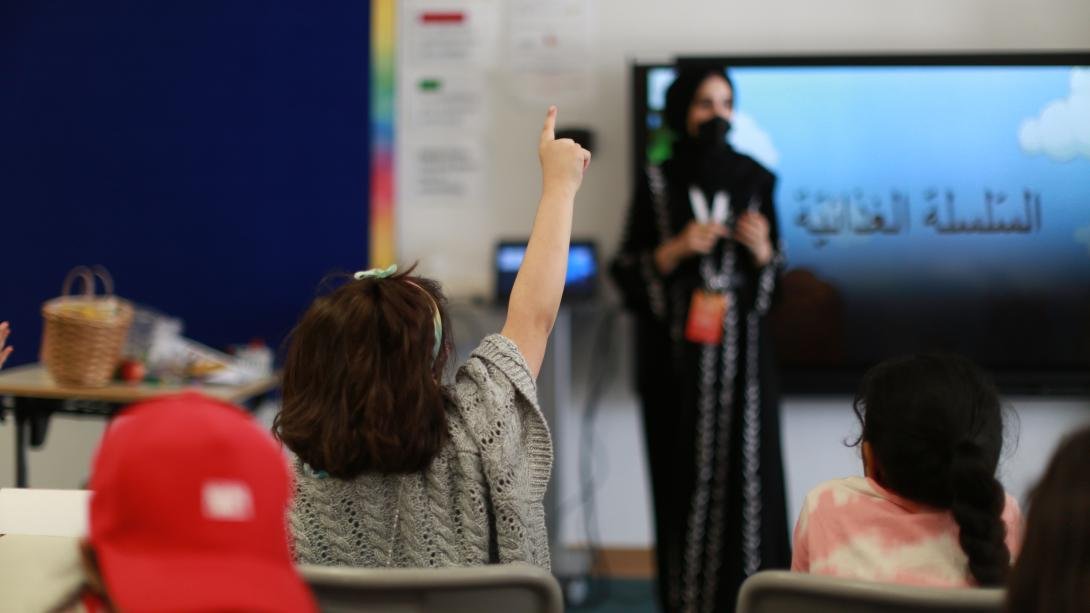In honor of the Global Day of Parents (June 1, 2023), let’s take a look at research by BEC member Food for the Hungry (FH) that analyzes communities strengthened through education across 10 countries. Below, FH’s Lisa Easterbrooks, Director of Education Programs, outlines the most recent findings on their community-based “care group” interventions.
The United Nations reported that 1.6 billion learners in more than 190 countries were affected by the closure of educational institutions at the peak of the COVID-19 pandemic. Between February 2020 and February 2022, educational systems were fully closed for in-person schooling for an average 141 days.
As a result, the World Bank estimates the percentage of children who cannot read a simple story by age 10 has increased to 70% since onset of the pandemic. All progress that was achieved toward mitigating learning poverty in low- and middle-income countries since 2000 has been lost.
Millions of children and youth now face the challenge of catching up on lost learning. Food for the Hungry (FH) is working with caregivers, teachers, and communities to improve child learning and development through social behavior change interventions.
FH recognizes that school-based approaches alone are not sufficient in many low- and middle-income countries to reach the goal of young children learning foundational skills. As a result, broadening the scope of education interventions beyond the school is a necessary step. This is where FH’s Education Care Groups come into play.
Care Groups consist of 10–15 community-based volunteer educators who meet regularly with project staff for training. They then facilitate behavior-change lessons to their neighbors in group settings and through household visits. Care Groups build caregiver capacity to support their children’s early child development and early-grade success.
FH staff involved in Care Groups for education have seen caregivers receive the information and use it in their own lives, in addition to the everyday lives of their children. One FH staff member said, “Before, they (caregivers) didn’t have time to think about their children’s studies. But since joining Care Groups, they are always trying to find time to help children.”
A staff member observed during a home visit that a father was carving a toy helicopter for his child. This shows that parents have learned the importance of play for child development and have found ways to make toys with locally available materials. FH staff is encouraged by this and say they “have hope that children will have their future with education. I think this program helps us to achieve our goal in every corner.”
Recent research by FH and Boston College’s School of Social Work has shown promising results of the impact of Care Groups on child learning outcomes. Researchers analyzed data sets from 10 countries that included data from a caregiver survey, as well as child learning outcomes measured by the International Development and Early Learning Assessment (IDELA) for children 3-6 yrs, and the Citizen Led Assessment (CLA) for children 7-15 yrs.
Researchers first compared two groups - caregivers who participated in Care Groups for education and those who did not, and correlated that with a caregiver behavior score, which was a sum score of multiple targeted learning support behaviors. These behaviors included:
- Setting a specific space for study in the home
- Reading with your child every day
- Meeting with your child’s teachers
- Singing songs and telling stories with your children
- Playing with your children
- Checking your children’s homework
- Enrolling your children in school at the recommended age
The correlation analysis revealed a statistically significant positive association between participation in Care Groups and caregiver behavior scores.
Researchers also analyzed the learning outcomes of children of the caregivers who participated in Care Groups and found that these children had higher scores on IDELA and CLA than children of caregivers who did not participate. Additionally, researchers found stronger correlations between caregiver behavior scores and child learning outcomes, when compared to participation alone.
In summary, caregivers who participate in community-based platforms that integrate social behavior change science, such as Care Groups, and adopt the early learning support behaviors have children who tend to score higher on learning assessments. Caregivers continue to be an important partner in the learning and development process.




